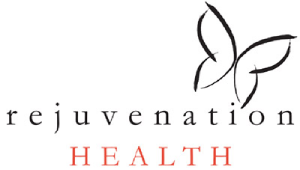Are you getting your full 8 hours of sleep? If not, you’re most likely suffering from the dangerous effects of sleep deprivation.
According to leading health agencies, around 20% of adults and children in the United States have chronic sleep deprivation or health conditions that lead to similar sleep disorders. My assumption is that this number may be even higher in reality.
Sleep deprivation is no laughing matter. It’s not just about the short-term impacts of pulling an all-nighter. Sleep deprivation is bad for your overall health in the long-term.
For example, sleep deprivation is associated with cardiovascular disease and a weakened immune system. A good night’s sleep is necessary for your physical health and well-being.
Below, I discuss the symptoms and causes of sleep deprivation, as well as the difference between “sleep deprivation” and “sleep deficiency”.
What is sleep deprivation?
Sleep deprivation is a condition in which you don’t get enough sleep. You can become sleep deprived due to medical conditions, environmental conditions (stress, long work hours, excess caffeine intake, etc.), or a combination of birth.
How many hours of sleep is considered sleep deprivation? Healthy sleep patterns vary by age. Adults aged 18+ require 7-8 hours of sleep.
Below is the breakdown of expected hours of sleep by age groups:
| Age | 4-12 months | 1-2 yrs | 3-5 yrs | 6-12 yrs | 13-18 yrs | 18+ yrs |
| Sleep Required | 12-16 hrs | 11-14 hrs | 10-13 hrs | 9-12 hrs | 8-10 hrs | 7-8 hours |
Note: For children aged 5 and younger, sleep schedules may include naps.
Whenever you don’t get enough sleep, the deficit is called your “sleep debt”. For example, if you lose 2 hours of sleep time every night for a week, you have a “sleep debt” of 14 hours.
Sleep deprivation is getting worse for young individuals. The National Sleep Foundation reports that more than 2 out of 3 high school students got 7 hours of sleep or fewer each night. That’s a sleep debt of 1 hour every night.
What does it mean to be sleep deprived? When you are sleep deprived, you have gotten less sleep than you need. Getting insufficient sleep may lead to an increased risk of early death, among other health problems.
Stages of Sleep Deprivation
There are 5 sleep deprivation stages:
After 24 hours: The CDC compares 24 hours of sleeplessness to having a blood alcohol level of more than 0.10%.
After 36 hours: At this point, you may begin to involuntarily experience “microsleeps”, in which you fall asleep for 30 seconds or so. Inflammation and immune system activity begin to go up.
After 48 hours: While any sleep deprivation is bad, at 48 hours of straight wakefulness, your body begins to enter dangerous territory. Expect to begin having hallucinations and more pronounced symptoms of sleep deprivation.
Awake for 72 hours: Microsleeps will become longer and more frequent. You may have complex delusions, more intricate hallucinations, and depersonalization.
Awake for 96 hours: At this point, you will likely be physically unable to stay awake. You may develop sleep deprivation psychosis and lose all touch with reality.
Sadly, what these stages remind us is that most people are aware of the dangers of major sleep loss in one brief episode, but perhaps not concerned about the building sleep debt from years of poor sleep.
No clearly defined stages of long-term sleep deprivation exist. In reality, there are two forms of sleep deprivation:
Acute sleep deprivation: This refers to brief spurts of poor quality sleep. Even one night of poor sleep is a problem, but a week or more can begin to produce noticeable results.
Chronic sleep deprivation: After many years of sleep deprivation, your body’s immune system and inflammation levels may be somewhat out of control. You’re more likely to experience obesity, cardiovascular disease, or many other known long-term impacts of losing sleep.
What is sleep deficiency?
Sleep deficiency is the broader concept, the umbrella term that covers sleep deprivation as well as other conditions.
Sleep deficiency may include the following:
- Sleep deprivation (not enough sleep)
- Low-quality sleep (not getting both REM sleep and deep sleep)
- Being out of sync with your body’s natural clock
- Any other sleep disorder
Sleep Deprivation Causes
Simply put, sleep deprivation is caused by a lack of sleep. If you don’t get the recommended amount of sleep (7-8 hours every night, in adults), then you are considered sleep-deprived.
Other than a busy schedule or just refusing to go to bed at a reasonable hour, there are several causes of sleep deprivation.
What can cause sleep deprivation?
- Insomnia
- Sleep apnea
- Airway obstruction (when your body has to wake you up to open up your airway)
- Narcolepsy
- Restless leg syndrome
- Excessive caffeine
- Certain medications
- Undiagnosed or untreated sleep disorder
- Undiagnosed or untreated mental disorder
- Complications of Sleep Deprivation
The effects of sleep deprivation are severe. When you do not treat or manage your sleep deprivation, this can lead to dangerous health problems over time.
What are the complications of untreated sleep deprivation?
- Hypertension (AKA high blood pressure)
- Heart disease
- Stroke
- Obesity and/or weight gain
- Type 2 diabetes
- Kidney disease
- Growth hormone suppression (leading to lower muscle mass and/or weaker bones)
- Immune system dysfunction
- ADHD
- Decreased sex drive (due to testosterone suppression)
- Increased stress hormone levels
- Depression
- Drowsy driving
- Higher risk of falling in older adults
- Higher risk of early death
Untreated sleep deprivation has also been linked to human error associated with aviation accidents, car accidents, and nuclear reactor meltdowns.
It’s that serious.
One reason for these complications is that sleep is one state in which your body literally “cleans out” its cells. This process is called autophagy and also occurs during exercise, ketosis, and/or periods of fasting.
Without regular periods of autophagy, your cells cannot benefit from the process that allows them to stay healthy by getting rid of damaged organelles and other useless or dangerous particles they contain.
Signs & Symptoms of a Lack of Sleep
What are the signs of sleep deprivation?
The potential symptoms of sleep deprivation include:
- Daytime sleepiness
- Frequent yawning
- Falling asleep without meaning to
- Microsleeps — brief periods of sleep during waking hours
- Issues with learning
- Difficulty concentrating
- Slow reaction time
- Decreased school/job performance
- Lowered driving ability
- Mood swings
- Depression, sadness
- Lack of motivation
- Anger, irritability
- Hyperactivity, particularly in children
What are the effects of lack of sleep? The effects of a lack of sleep are different for everyone. Those with poor sleep habits often experience excessive sleepiness the next day, but children may exhibit hyperactivity.
Lack of sleep negatively affects your performance at school, your job, in social interactions, and on the road. The American Academy of Sleep Medicine reports that 1 in 5 serious car accident injuries is related to drowsy driving.
Risk Factors
Sleep deprivation affects all age groups and all ethnicities. But there are a few risk factors to look out for — some more obvious than others.
Risk factors for sleep deprivation:
Untreated or undiagnosed medical conditions (i.e., depression, anxiety, stress, other sleep disorders like sleep apnea)
Schedules that clash with your body’s natural clock (i.e., first responders, shift work employees, those with long commutes, caregivers, people working long hours, those holding more than one job, children/teens with early school commitments)
Lifestyle choices that stop you from getting enough sleep (i.e., taking meds to stay awake and/or alert, not allowing enough time for quality sleep, excessive use of drugs or alcohol)
Short-Term vs. Long-Term Sleep Deprivation
Short-term sleep deprivation may lead to daytime sleepiness, decreased job/school performance, and potentially fatal car accidents.
Long-term sleep deprivation is even worse — it ruins your health from head to toe.
Chronic sleep deprivation is associated with cardiovascular disease, immune system dysfunction, higher stress levels, and many other complications. Accumulating sleep debt in little amounts every night will result in chronic systemic diseases and a much lower quality of life after years of incremental damage.
A lack of sleep may cause hunger and lead to increased body mass. Landmark research associates sleep deprivation with the peptides that regulate appetite: ghrelin and leptin.
Ghrelin stimulates hunger and leptin signals fullness. Sleep deprivation seems to increase levels of ghrelin and decrease levels of leptin. This means you are artificially hungrier and struggle to feel full. Not getting enough sleep can compel you to eat more, thus leading to weight gain and increased body mass.
Greater body mass is linked to dangerous complications including heart attack, stroke, and premature death.
Treatment & Management
Healthy sleep is important to your whole-person health. Treatment of sleep deprivation is as simple as getting enough sleep.
For some, however, intervention is required.
If you’re diagnosed with obstructive sleep apnea, you may be prescribed CPAP therapy or the newer, evidence-based DNA oral appliance.
A CPAP (or APAP) can get you breathing at night, but the DNA oral appliance addresses the root cause of sleep apnea that might be disrupting your sleep: a narrow airway.
The Centers for Disease Control and Prevention (CDC) recommends the following tips to improve sleeping habits:
- Have a consistent sleep schedule, including on weekends. Wake up and go to bed at the same time each day.
- Avoid the use of electronics before bedtime — due to blue light exposure tricking your brain into thinking the sun is still out, which throws off your circadian rhythm.
- Stay active during the day, but avoid exercise or strenuous activity within a few hours of bedtime.
- Do not eat a large meal or consume caffeine within a few hours of bedtime.
Reducing alcohol intake has shown improvements in many people’s sleep quality and sleep duration.
To diagnose sleep deprivation or other sleep problems, you need a sleep study. During a typical sleep study, a sleep specialist will measure:
- Blood oxygen levels
- Heart rate
- Breathing
- Snoring
- Brain waves
- Eye movements
- Leg movements
Getting a little sleep (napping) during the day does not treat sleep deprivation. Humans need both REM sleep and deep, non-REM sleep for optimal health. Napping for less than an hour does not allow for this virtuous cycle.
In fact, naps longer than 30 minutes during the day are actually associated with worsened sleep quality.
Dentist as Sleep Specialist
Why would you go to a dentist for a sleep disorder? Holistic dentists are focused on how oral health and airway health affect your overall health, including your sleep health.
A 2006 study on 145,000 patients found up to a 21% reduction in healthcare costs associated with major systemic diseases when oral health is improved.
Click here to set up your appointment today. At Rejuvenation Dentistry, we empower our patients to take control of their whole-person health, including airway health problems, sleep apnea, and other sleep disorders.
Sources
- Al-Abri, M. A. (2015). Sleep Deprivation and Depression: A bi-directional association. Sultan Qaboos University Medical Journal, 15(1), e4. Full text: https://www.ncbi.nlm.nih.gov/pmc/articles/PMC4318605/
- Cappuccio, F. P., D’Elia, L., Strazzullo, P., & Miller, M. A. (2010). Sleep duration and all-cause mortality: a systematic review and meta-analysis of prospective studies. Sleep, 33(5), 585-592. Full text: https://www.ncbi.nlm.nih.gov/pmc/articles/PMC2864873/
- Taheri, S., Lin, L., Austin, D., Young, T., & Mignot, E. (2004). Short sleep duration is associated with reduced leptin, elevated ghrelin, and increased body mass index. PLoS Med, 1(3), e62. Full text: https://www.ncbi.nlm.nih.gov/pmc/articles/PMC535701/
- Akil, L., & Ahmad, H. A. (2011). Relationships between obesity and cardiovascular diseases in four southern states and Colorado. Journal of health care for the poor and underserved, 22(4 Suppl), 61. Full text: https://www.ncbi.nlm.nih.gov/pmc/articles/PMC3250069/
- Shechter, A., Kim, E. W., St-Onge, M. P., & Westwood, A. J. (2018). Blocking nocturnal blue light for insomnia: A randomized controlled trial. Journal of psychiatric research, 96, 196-202. Full text: https://www.ncbi.nlm.nih.gov/pmc/articles/PMC5703049/
- Park, S. Y., Oh, M. K., Lee, B. S., Kim, H. G., Lee, W. J., Lee, J. H., … & Kim, J. Y. (2015). The effects of alcohol on quality of sleep. Korean journal of family medicine, 36(6), 294. Full text: https://www.ncbi.nlm.nih.gov/pmc/articles/PMC4666864/
- Albert, D. A., Sadowsky, D., Papapanou, P., Conicella, M. L., & Ward, A. (2006). An examination of periodontal treatment and per member per month (PMPM) medical costs in an insured population. BMC Health Services Research, 6(1), 103. Full text: https://www.researchgate.net/publication/6873716_An_examination_of_periodontal_treatment_and_per_member_per_month_PMPM_medical_costs_in_an_insured_population




